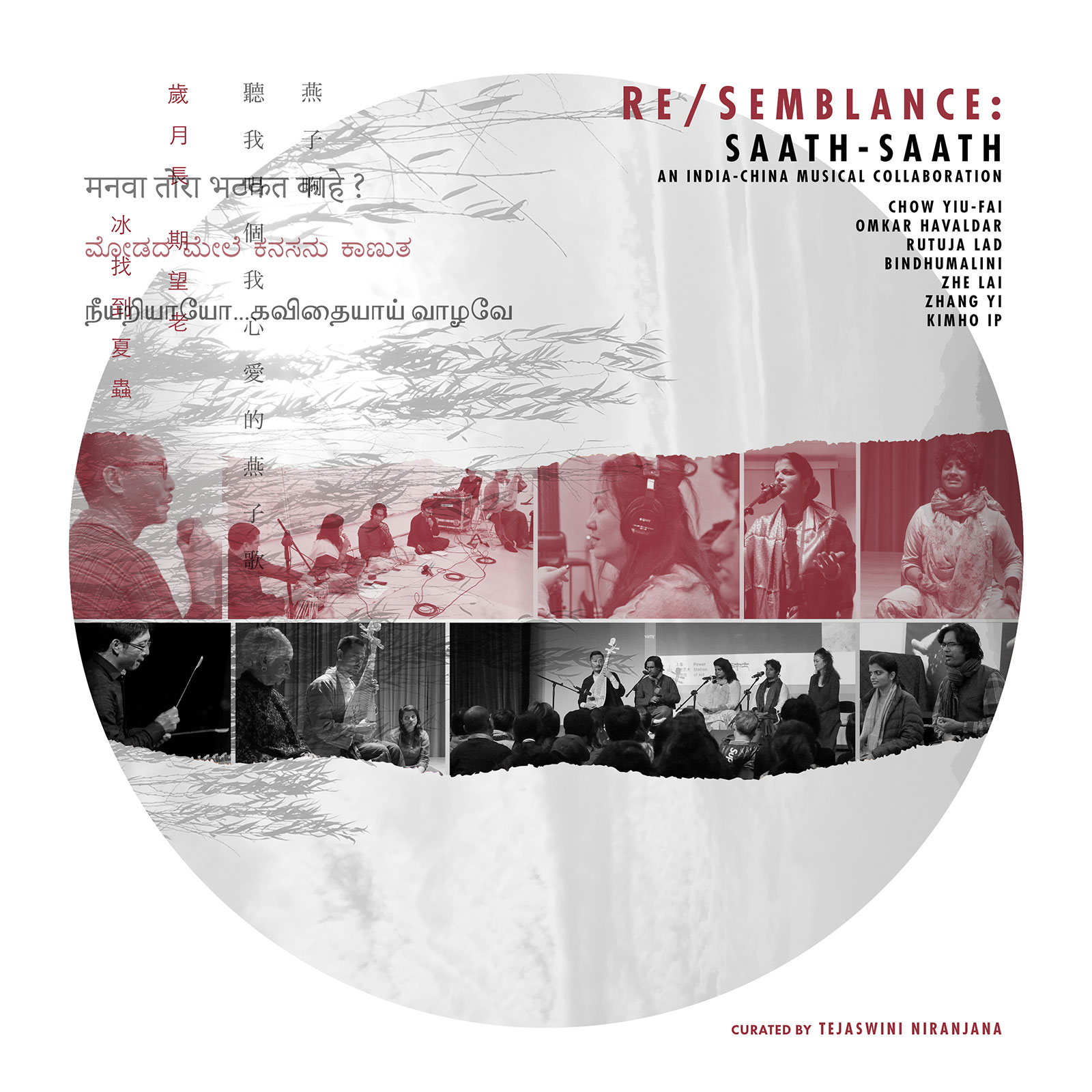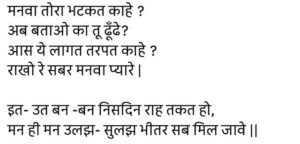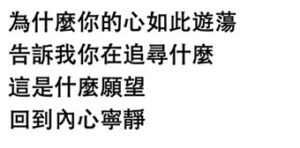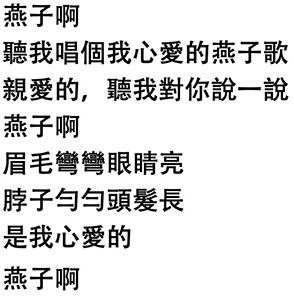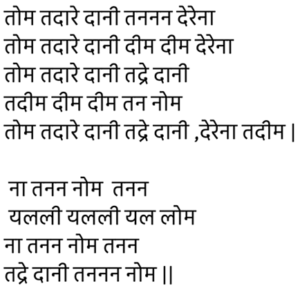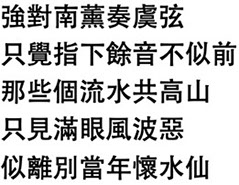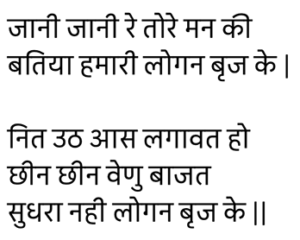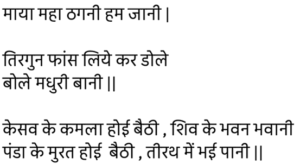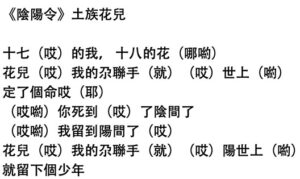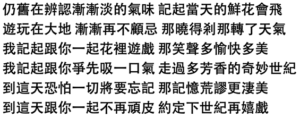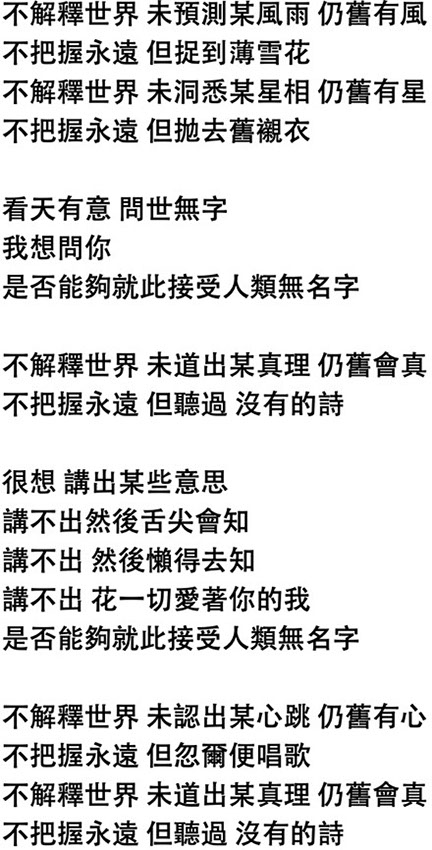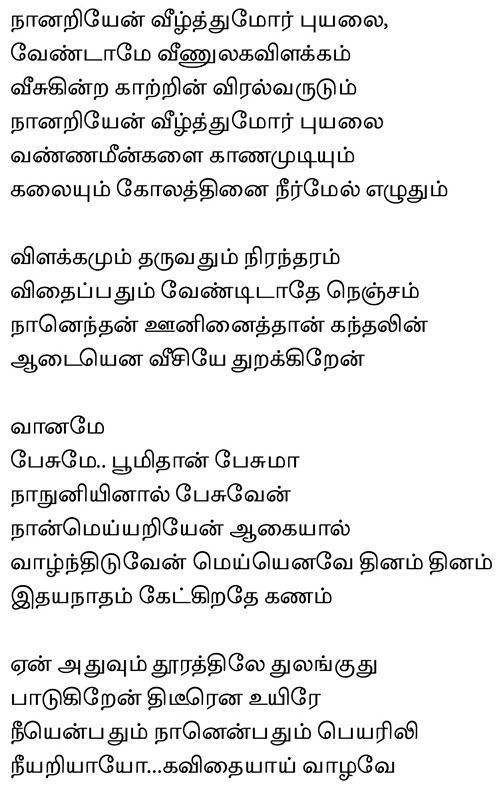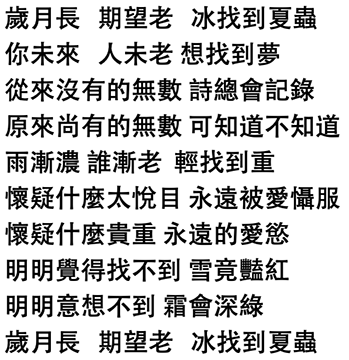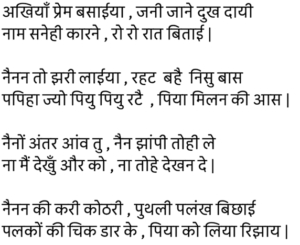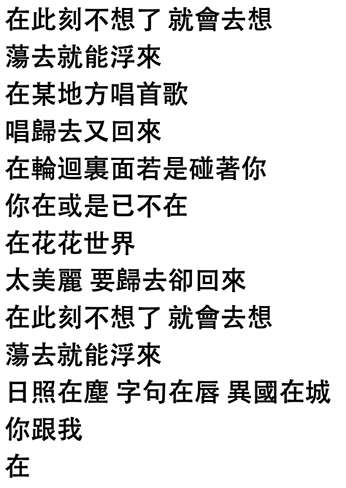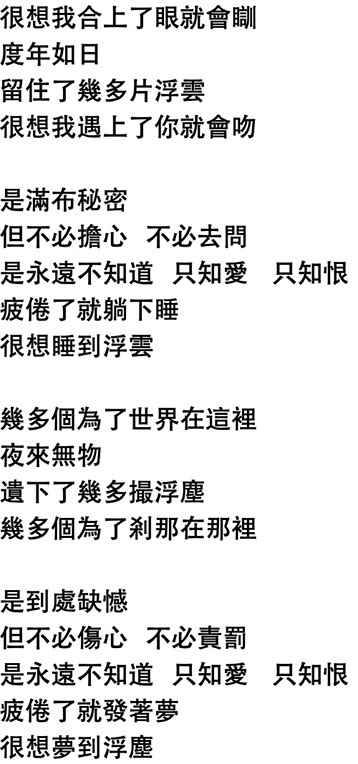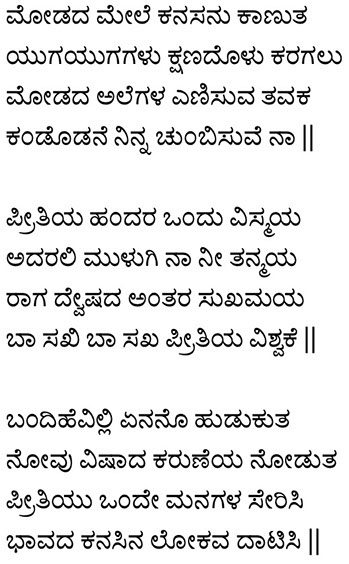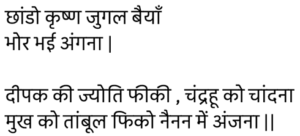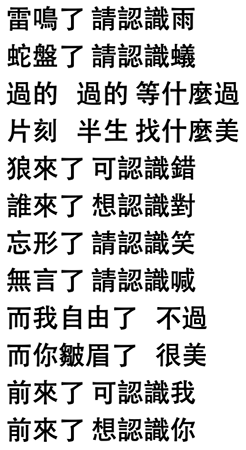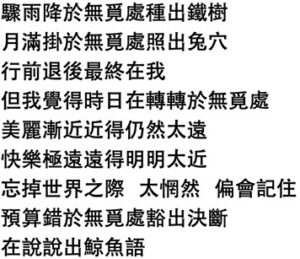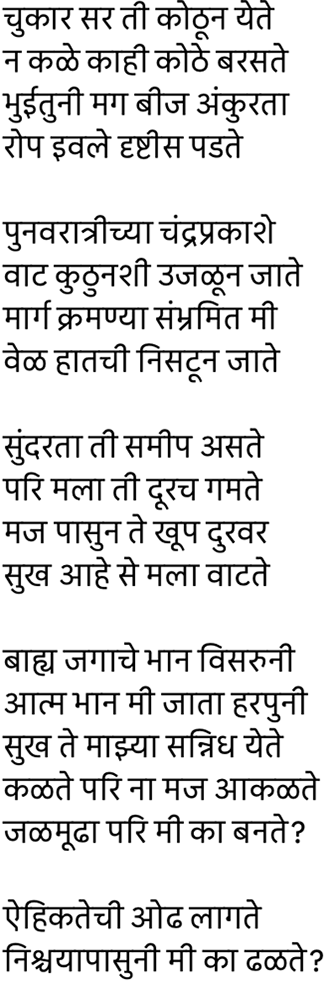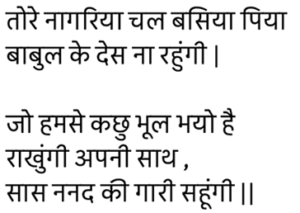Re/Semblance: Saath-Saath
Tejaswini Niranjana curator, producer
Chow Yiu-Fai vocals
Omkarnath Havaldar composer, vocals
Rutuja Lad composer, vocals
Bindhumalini Narayanaswamy composer, vocals
Zhe Lai vocals
Zhang Yi composer, pipa, vocals
Kimho Ip yangqin
RE/SEMBLANCE: SAATH-SAATH from Ansonica Records is a unique collaboration between Indian and Chinese musicians and a Cantopop lyricist. The result lives up to the meaning of the Hindustani phrase Saath-Saath: “together-together.” Transcending the confines of borders and cultural differences, this double album is the result of multiple crisscrossing journeys that took Chinese musicians to Bangalore and Mumbai, and took Indian musicians to Hong Kong, Shanghai, Beijing, Hangzhou, Suzhou, and Wuhan. The music exemplifies the notion of “resemblance” by hinting at and recombining a number of cultural traditions; listeners hear a melody that hints at a Hindustani raga, Indian singers intone a Cantonese poem, and more. Through the shared language of music, RE/SEMBLANCE: SAATH-SAATH opens up exciting new possibilities for inter-cultural conversations.
Listen
Stream/Buy
Choose your platform
“Re/Semblance: Saath-Saath is a lengthy, multifaceted work, which will reward multiple listens with its depth and richness.”
Track Listing & Credits
| # | Title | Composer | Performer | |
|---|---|---|---|---|
| DISC ONE: Shanghai | ||||
| 01 | The Wandering Heart | Zhang Yi | Omkar Havaldar, Rutuja Lad, Bindhumalini, Zhe Lai, vocals; Zhang Yi, vocals, pipa; Kimho Ip, yangqin; Kedarnath Havaldar, tabla; Sameer Havaldar, harmonium | 6:03 |
| 02 | Qarlygash | Traditional | Omkar Havaldar, Rutuja Lad, Bindhumalini, Zhe Lai, vocals; Zhang Yi, vocals, pipa; Kimho Ip, yangqin; Kedarnath Havaldar, tabla; Sameer Havaldar, harmonium | 4:25 |
| 03 | Green Tara | Zhang Yi | Omkar Havaldar, Rutuja Lad, Bindhumalini, Zhe Lai, vocals; Zhang Yi, vocals, pipa; Kimho Ip, yangqin; Kedarnath Havaldar, tabla; Sameer Havaldar, harmonium | 13:49 |
| 04 | Appreciating the Lotus | Omkar Havaldar, Bindhumalini, Rutuja Lad | Omkar Havaldar, Rutuja Lad, Bindhumalini, Zhe Lai, vocals; Zhang Yi, vocals, pipa; Kimho Ip, yangqin; Kedarnath Havaldar, tabla; Sameer Havaldar, harmonium | 5:40 |
| 05 | Oblivion | Traditional | Omkar Havaldar, Rutuja Lad, Bindhumalini, Zhe Lai, vocals; Zhang Yi, vocals, pipa; Kimho Ip, yangqin; Kedarnath Havaldar, tabla; Sameer Havaldar, harmonium | 5:36 |
| 06 | Maya, the Swindler | Kabir | Omkar Havaldar, Rutuja Lad, Bindhumalini, Zhe Lai, vocals; Zhang Yi, vocals, pipa; Kimho Ip, yangqin; Kedarnath Havaldar, tabla; Sameer Havaldar, harmonium | 10:12 |
| DISC TWO: Hong Kong | ||||
| 01 | When the New Century Comes | Wong Yiu Ming | Omkar Havaldar, Rutuja Lad, Bindhumalini, Zhe Lai, vocals; Zhang Yi, vocals, pipa; Kimho Ip, yangqin; Kedarnath Havaldar, tabla; Sameer Havaldar, harmonium | 4:53 |
| 02 | Never Explain the World | Bindhumalini | Omkar Havaldar, Rutuja Lad, Bindhumalini, Zhe Lai, vocals; Zhang Yi, vocals, pipa; Kimho Ip, yangqin; Kedarnath Havaldar, tabla; Sameer Havaldar, harmonium | 5:10 |
| 03 | Ice and a Summer Insect | Omkar Havaldar | Omkar Havaldar, Rutuja Lad, Bindhumalini, Zhe Lai, vocals; Zhang Yi, vocals, pipa; Kimho Ip, yangqin; Kedarnath Havaldar, tabla; Sameer Havaldar, harmonium | 3:42 |
| 04 | Come Into My Eyes | Bindhumalini | Omkar Havaldar, Rutuja Lad, Bindhumalini, Zhe Lai, vocals; Zhang Yi, vocals, pipa; Kimho Ip, yangqin; Kedarnath Havaldar, tabla; Sameer Havaldar, harmonium | 8:02 |
| 05 | At | Rutuja Lad | Omkar Havaldar, Rutuja Lad, Bindhumalini, Zhe Lai, vocals; Zhang Yi, vocals, pipa; Kimho Ip, yangqin; Kedarnath Havaldar, tabla; Sameer Havaldar, harmonium | 5:08 |
| 06 | Dream of Floating Dust | Omkar Havaldar | Omkar Havaldar, Rutuja Lad, Bindhumalini, Zhe Lai , vocals; Zhang Yi, vocals, pipa; Kimho Ip, yangqin; Kedarnath Havaldar, tabla; Sameer Havaldar, harmonium | 5:25 |
| 07 | Krishna at Moonset | Rutuja Lad | Omkar Havaldar, Rutuja Lad, Bindhumalini, Zhe Lai, vocals; Zhang Yi, vocals, pipa; Kimho Ip, yangqin; Kedarnath Havaldar, tabla; Sameer Havaldar, harmonium | 8:02 |
| 08 | To Know | Bindhumalini | Omkar Havaldar, Rutuja Lad, Bindhumalini, Zhe Lai, vocals; Zhang Yi, vocals, pipa; Kimho Ip, yangqin; Kedarnath Havaldar, tabla; Sameer Havaldar, harmonium | 3:51 |
| 09 | Nowhere to Be Found | Rutuja Lad | Omkar Havaldar, Rutuja Lad, Bindhumalini, Zhe Lai, vocals; Zhang Yi, vocals, pipa; Kimho Ip, yangqin; Kedarnath Havaldar, tabla; Sameer Havaldar, harmonium | 5:39 |
| 10 | Away to Your City | Omkar Havaldar | Omkar Havaldar, Rutuja Lad, Bindhumalini, Zhe Lai, vocals; Zhang Yi, vocals, pipa; Kimho Ip, yangqin; Kedarnath Havaldar, tabla; Sameer Havaldar, harmonium | 11:53 |
The Wandering Heart
Hindi Lyrics Bindhumalini, Omkar Havaldar, Rutuja Lad and Surabhi Sharma
Mandarin Lyrics Zhang Yi
Qarlygash -The Swallow
Adaptation of a Kazakh folk song
Green Tara
Tarana Lyrics Tejaswini Niranjana, Rutuja Lad
Oblivion
From an old composition from Hindustani music
Maya, the Swindler
A poem by the 15th century saint-poet Kabir
English translation by Bindhumalini
When the New Century Comes
Original Composer Wong Yiu Ming / Choi Tak Choy
OP: Universal Music Publishing Limited
Cantonese Lyrics and Vocals Chow Yiu-Fai
Never Explain the World
Tamil Lyrics Kutti Revathi
OP: EEG Music Publishing Limited
Ice and a Summer Insect
Cantonese Lyrics Chow Yiu-Fai
OP: EEG Music Publishing Limited
Come into my Eyes
Lyrics Kabir
At
Cantonese Lyrics Chow Yiu-Fai
OP: EEG Music Publishing Limited
Dream of Floating Dust
Cantonese Lyrics Chow Yiu-Fai
Kannada Lyrics Sharada K.G. Havaldar and Nagaraj Rao Havaldar
OP: EEG Music Publishing Limited
To Know
Cantonese Lyrics Chow Yiu-Fai
OP: EEG Music Publishing Limited
Nowhere to be Found
Cantonese Lyrics Chow Yiu-Fai
Marathi Lyrics Vasudha Modak, Avhinav Shetty Jaiswal
OP: EEG Music Publishing Limited
Recorded December 1-3, 2019 at Jinze Arts Centre in Jinze, Shanghai, China;
January 25-27, March 30-31, 2021 at Prabhath Studios in Bangalore, Karnataka, India; March 28, 2021 at Soundcubes in Mumbai, India; March 29, 2021 at the Laboratory for Immersive Arts and Technology at Hong Kong Baptist University, Hong Kong; March 30, 2021 at Kambay Studios in Mumbai, India
Curator and Producer Tejaswini Niranjana
Mix and mastering Ashwin Prabhath
Recording Session Engineers Ashwin Prabhath (Bangalore), Rangaswamy (Bangalore), Allen Zhu (Jinze), Krunal Shah, Nishant Vaidya (Mumbai), Lai Ching Kong (Hong Kong)
Creative Producer Bindhumalini
Production In-Charge Chen Yun (Mainland China/Shanghai), Grace Yee (Hong Kong)
Studio Advisor Omkar Havaldar
Production Executive Holly Leung
Cantonese Lyrics Chow Yiu-Fai
Tamil Lyrics Kutti Revathi
Kannada Lyrics Sharada K.G. Havaldar, Nagaraj Rao Havaldar
Marathi Lyrics Vasudha Modak, Avhinav Shetty Jaiswal
Translators Sohnee Harshey, Vipul Rikhi
Cantonese Voice Coach Natalie Yuen
Partners
Centre for Cultural Research and Development, Lingnan University
Jinze Arts Centre
Hanart TZ Gallery
West Heavens
Supported by Moonchu Foundation
Special thanks
Qiaoqiao Cheng
Gwendoline Cho Ning Kam
Mitche Choi
Feng Yi
Naved Aslam Khan
Christopher J. Keyes
Lalith Rao
Li Siu Leung
Li An
Feng Lin
Jorge Ramiro Monroy
Mui Bing How
Qian Yin
Ashish Rajadhyaksha
Harrison Zonghuan Sainz
Kiki Yau
Yu Siu Wah
Without the unstinting support of Johnson Chang Tsong Zung, the Saath-Saath Project would not have been realized.
Executive Producer Bob Lord
Executive A&R Sam Renshaw
A&R Director Brandon MacNeil
A&R Morgan Santos
VP of Production Jeff LeRoy
Audio Director Lucas Paquette
VP, Design & Marketing Brett Picknell
Art Director Ryan Harrison
Design Edward A. Fleming
Publicity Patrick Niland, Sara Warner
Artist Information

Tejaswini Niranjana
Tejaswini Niranjana, curator and producer, is the author of several books, including Mobilizing India: Women, Music and Migration between India and Trinidad (Duke UP, 2006), and Musicophilia in Mumbai: Performing Subjects and the Metropolitan Unconscious (Duke UP, 2020). She has also edited the anthology, Music, Modernity and the Public Sphere in India (OUP, 2020).
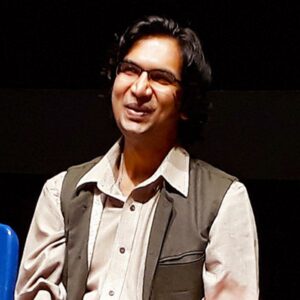
Omkarnath Havaldar
Omkarnath Havaldar was born into a family of musicians and was initiated into Hindustani classical music by his father, Dr. Nagarajrao Havaldar, a well-known Hindustani classical vocalist. He was trained under masters like Pandit Madhava Gudi of Kirana Gharana and Pandit Panchakshari Swami Mattigatti of Jaipur-Atrauli Gharana, and is now pursuing his training in Dhrupad and Khayal from Pandit Indudhar Nirody. Having received his M.A. in Music, he is also a recipient of the Kishora Pratibha Puraskar instituted by the Government of Karnataka (2000). He has performed all over the United States, at Yale University and the Chicago Center of Music, and at concerts in China and Hong Kong with Saath-Saath.
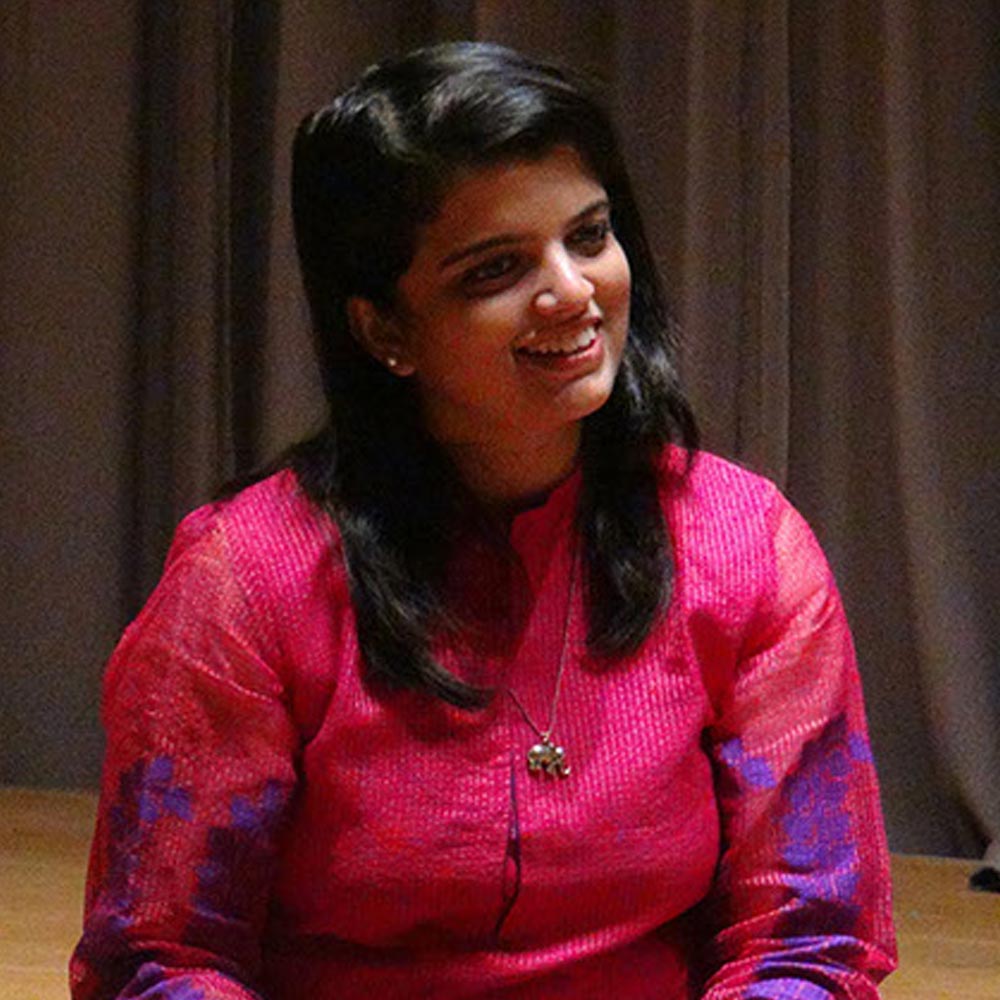
Rutuja Lad
Rutuja Lad was initiated into music by her parents, Tanuja Lad and Umesh Lad, when she was five years old. Later, she started learning from Dhondutai Kulkarni of the Jaipur Atrauli Gharana and was under her tutelage until she passed away in 2014. Now she studies with Dr. Ashwini Bhide Deshpande. She also studies harmonium with Shri Sudhir Nayak. Rutuja has performed at prestigious events all over India. She stood first in her master’s program in Music from the S.N.D.T University, where she is presently a visiting faculty member. She has performed all over China and Hong Kong with Saath-Saath.
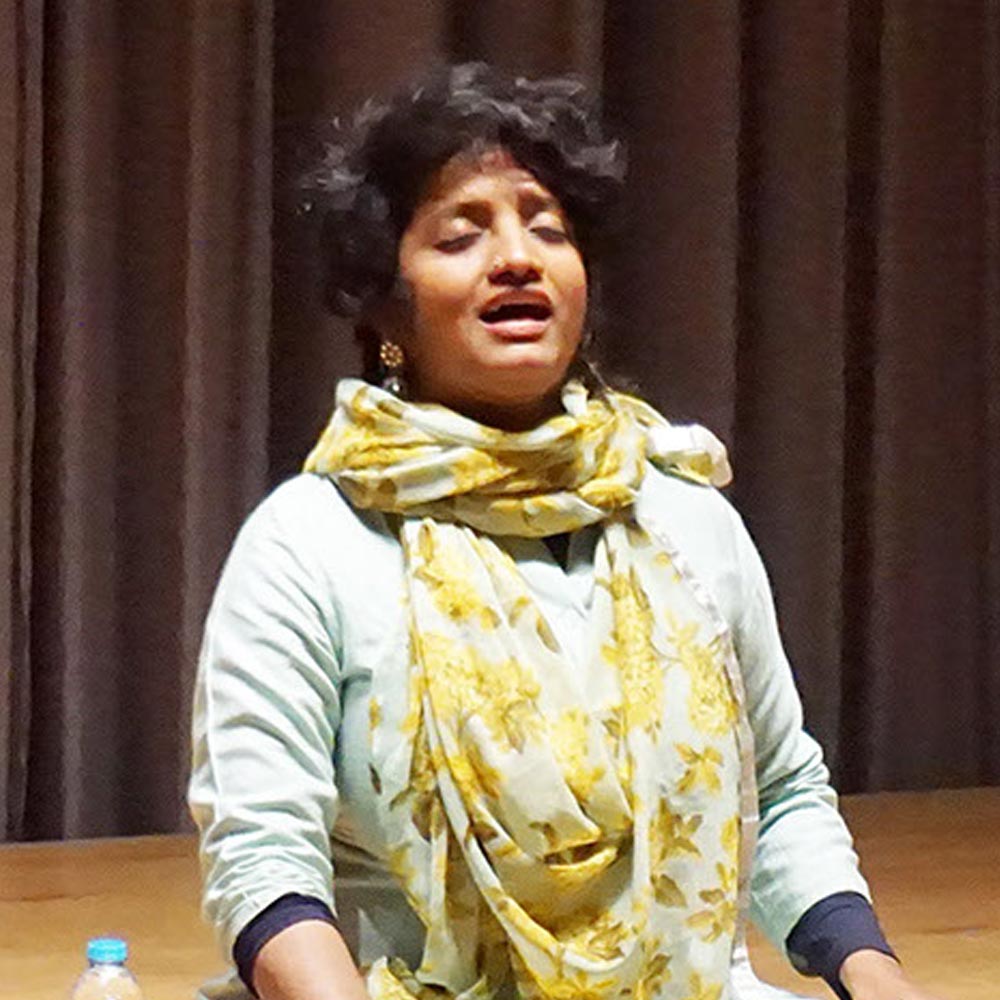
Bindhumalini Narayanaswamy
Bindhumalini Narayanaswamy is a singer, composer, and graphic designer. She has training in both Carnatic and Hindustani classical forms but has constantly strived to explore other forms and traditions outside of her strict classical roots. This has helped her develop an easy yet confident personal style as a performer. Suno Bhai is her first music album created in collaboration with Vedanth Bharadwaj. She has directed music for feature and documentary films such as Harikatha Prasanaga, Nathicharami, Sethumaan, Brahmi, Conversations at the Kumbh, surey number zero and Coral Woman. She and Vedanth co-directed music for Aruvi, a Tamil film. Bindhumalini is part of collaborations like The Threshold, Khusrau ke rang, Akath Kahani, and Saath-Saath. She won the 66th National Award and Filmfare Award as Best Singer for the songs she created and sang in the film Nathicharami.
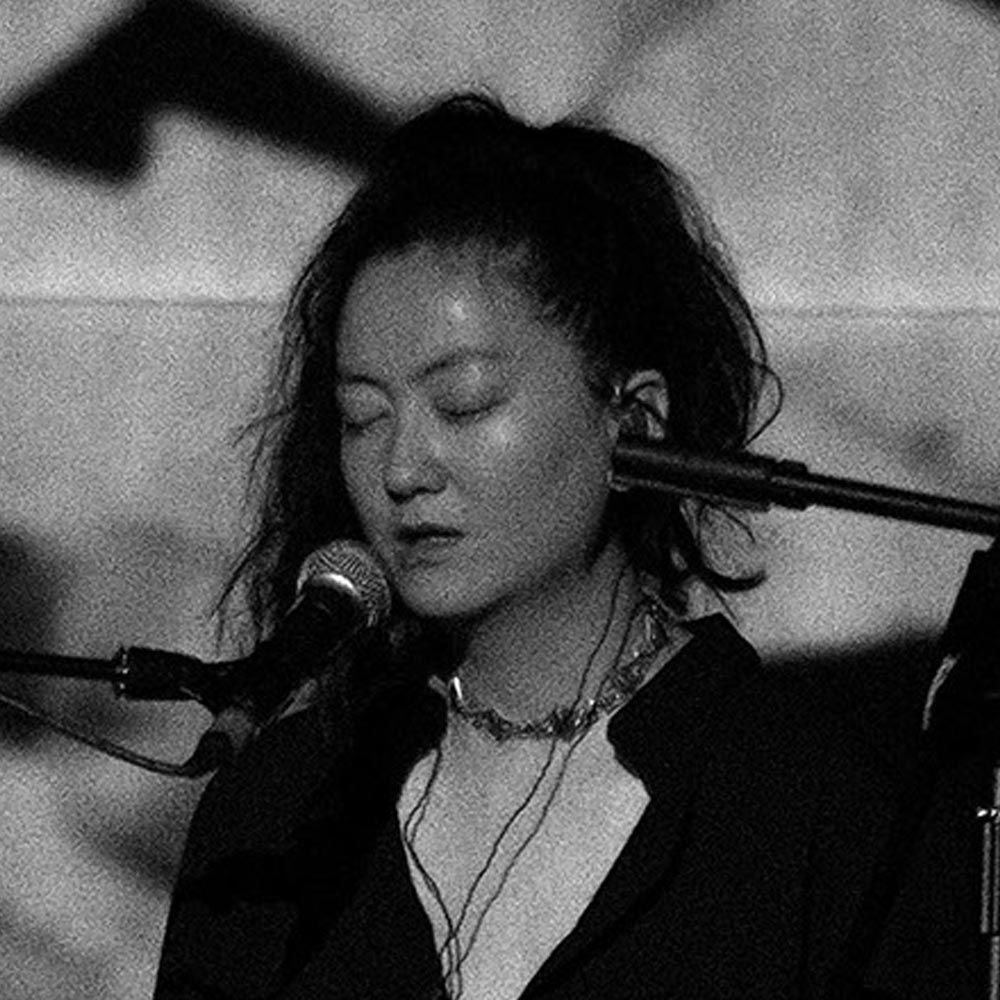
Zhe Lai
Zhe Lai is a vocalist coming from Hexi in Gansu Province. She was trained as a traditional folk singer. Nourished by the traditional, national culture of China’s northwest, she gradually found her own original way to express herself by collaborating with a wide variety of creative artists. Then she decided to become a Sound Explorer exploring the multiplex possibilities of vocal music, succeeding in redefining everything she has learned with her voice. She is an indispensable member of the Saath-Saath ensemble.
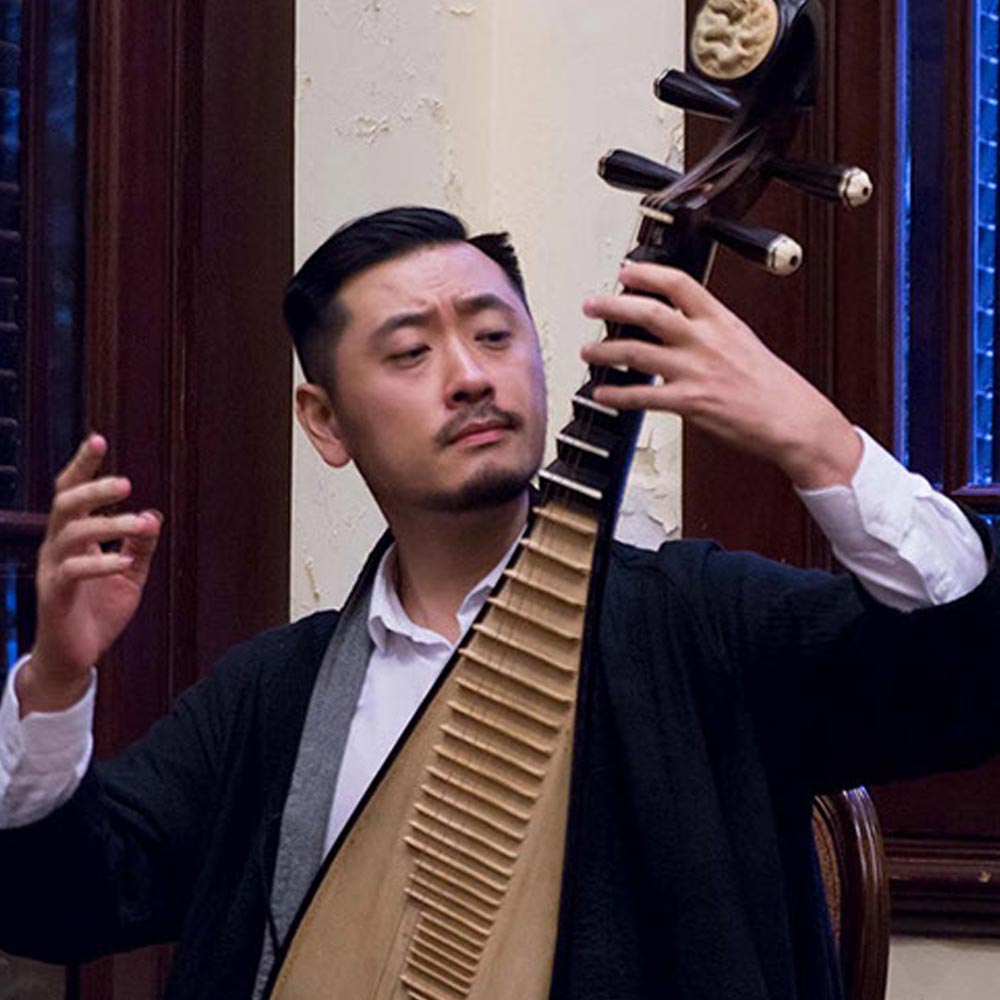
Zhang Yi (Zen)
Zhang Yi (Zen) is a Pipa and Guzheng player, composer, and Chinese instrumental music arranger. Graduated from the Shanghai Conservatory of Music, he holds a master’s degree in Pipa performance and had Guzheng performance as his second major. Influenced by various music genres as well as his overseas experience, Yi Zhang’s music includes elements ranging from Jazz, Indian folk music, Chinese folk music, electronica, and Ragga.
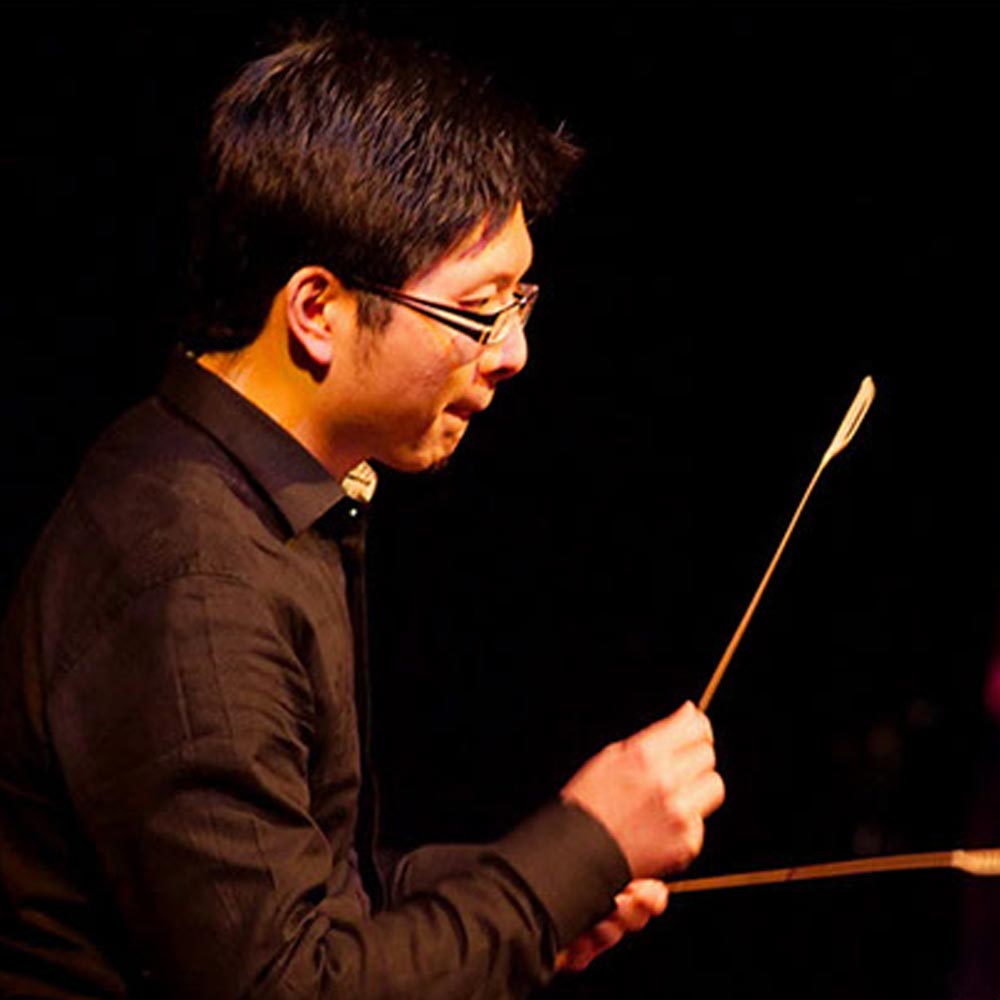
Kimho Ip
Kimho Ip studied in music and received his doctorate in 2004 at the University of Edinburgh in the United Kingdom. In 2011 and 2014 he was invited to be a Research Fellow at the International Research Centre, Interweaving Performance Culture at the Freie Universität Berlin, Germany. Kimho is active in playing the Chinese dulcimer (Yang Ch’in), especially performing with the Dutch saxophonist Filip Davidse for silent films. Major performances include appearances at the Edinburgh International Festival and the Royal Opera House, Covent Garden in London. He has been invited to give guest lectures in the U.K. and Germany as well as at the Peking University in China.
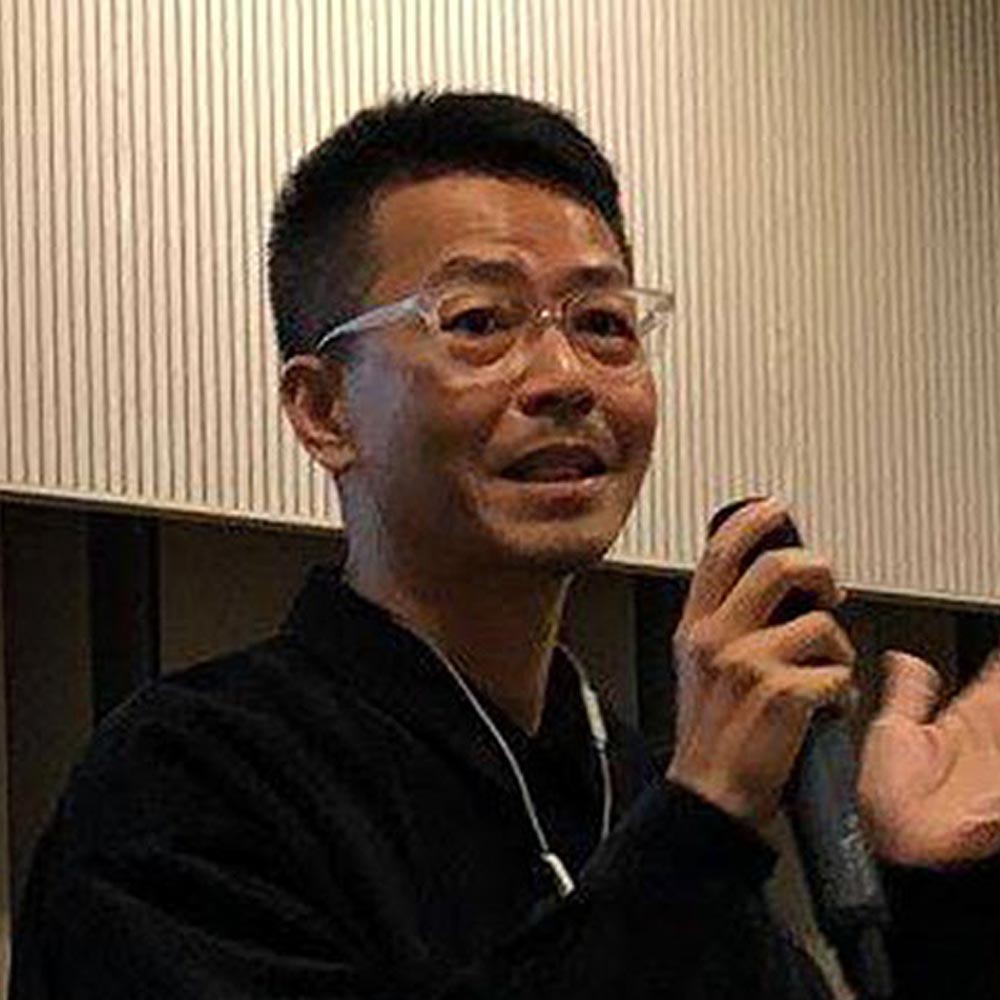
Chow Yiu Fai
Chow Yiu Fai received his Ph.D. at the Amsterdam School of Communication Research, University of Amsterdam. Currently an Associate Professor at the Department of Humanities and Creative Writing of Hong Kong Baptist University, Chow’s research fields include gender and sexuality, creative practices, and cultural studies at large. His co-authored book Sonic Multiplicities: Hong Kong Pop and the Global Circulation of Sound and Image (Intellect) is also available in Chinese. Along with his academic work, Chow is also an award-winning writer. He released his first lyrics in 1989. Since then he has penned some 1,000 lyrical works for a variety of pop artists in Hong Kong, Taiwan, and mainland China. In addition to many lyrics awards, Chow’s prose work A Long, Long Farewell won the Recommendation Prize of the biennale Hong Kong Literary Awards (Essays). Lately, Chow has been increasingly involved in multimedia and visual art projects.
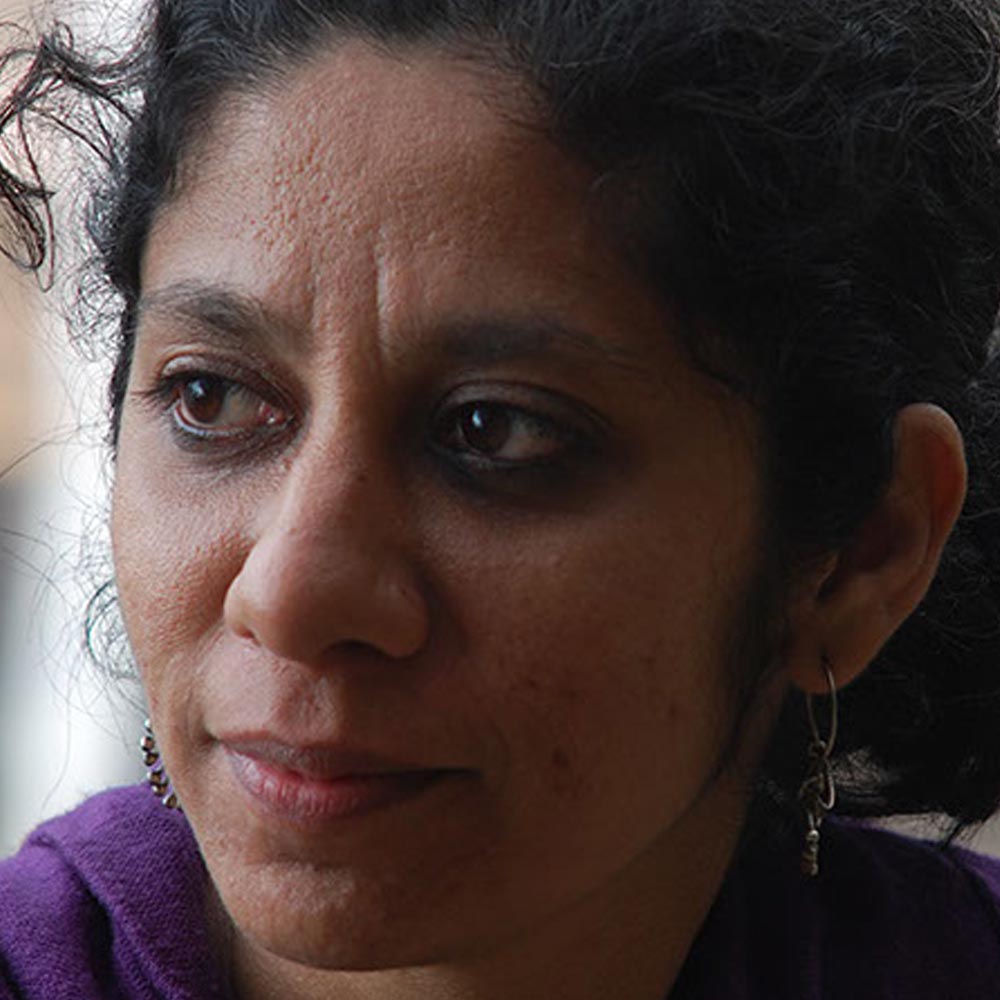
Surabhi Sharma
Surabhi Sharma is a filmmaker based in Abu Dhabi and Mumbai. Her documentaries, fiction, and video installations engage with cities in transition using the lens of labor, music, and migration. Cinema verite and ethnography are the genres that inform her filmmaking. She is currently teaching in the Film and New Media Programme at New York University Abu Dhabi.
Sharma’s films have been screened and awarded at international film festivals and are included in teaching curricula in universities in North America and India. Her works have been screened at International Film Festivals like Dubai International Film Festival, Yamagata International Documentary Film Festival, MAMI Mumbai Film Festival among others. Her video installations have been exhibited at the Serpentine Gallery, London; nGbK, Berlin; Shenzhen and Hong Kong Bi-city Biennale of Urbanism and Architecture; and the 11th Shanghai Biennale (2016).
Notes
Saath-Saath is “together-together” in the Hindustani language, an intentional repetition of a word to show its importance, mimicking how one might say it in Cantonese or Mandarin.
What happens when Indian and Chinese musicians meet? “Indian” and “Chinese” refer here not to practices tied to modern nation-states but to performative idioms embedded in specific social-cultural-political histories. Are the musicians able to overcome the lack of shared languages? Can they communicate through a lingua musica comprising voice and melody, and if so, what is communicated? Do they simply perform “their own music” side by side with each other, or can they actually create a new kind of music?
Historically, the musical crossings date back to the 7th century, a good 1,400 years ago, during the Tang dynasty, when songs, instruments, and musicians from West Asia and South Asia thronged the port cities of China. That’s when the prevailing musical scale in China, it is believed, was transformed into the heptatonic scale under the influence of Indian or South Asian music. Today, however, after China’s turn to the West beyond its immediate west in the late 19th and early 20th centuries, there may be no traces left of that seven-note scale. But perhaps the latent memory of that old interaction still persists, manifested in the shape and sound of certain Chinese instruments or in the ways Indian melodic structures can be harmonized with Chinese melodic expression.
This double album presents a truly unique contemporary collaboration between Indian and Chinese vocalists and instrumentalists, and a Cantopop lyricist. DISC 1, recorded in Jinze, an ancient township near Shanghai, showcases the electrifying voices of Bindhumalini, Rutuja Lad, and Zhe Lai in compositions such as Maya, the Swindler (based on a poem by the 15th century Indian saint-poet Kabir) and Qarlygash -The Swallow (based on a Kazakh folk song long popular in Mandarin as “Yienze”). In Oblivion, Omkar Havaldar and Zhang Yi join the others with vocals and pipa to present an old composition from Hindustani music with the added frisson of the Chinese instrument. Appreciating the Lotus is a kunqu opera lyric in the Lan Hua Mei genre, where the southern breeze and the sound of the waves enliven a tune in Raag Bhairavi re-presented in old Chinese. The Wandering Heart was composed by Zhang Yi, who drew on the melodic structures of Raag Bhairav, infusing them with his pipa training to present a bi-lingual tale about the resolution of emotional turmoil. Green Tara is also a Zhang Yi composition based on the Tibetan Buddhist goddess of that name, deconstructed by the Indian singers into three Hindustani ragas and re-assembled as a new raag, “Jogavathi.”
In DISC 2, the Hong Kong album, seven of the 10 tracks are based on the profoundly allusive poems of the Cantonese writer Chow Yiu-Fai. When the New Century Comes is a poignant poem from 1997, the year of the handover of the erstwhile British colony to China, presented by the three Indian vocalists, the poet, and yangqin player Kimho Ip. In “Ice and a Summer Insect,” written in response to Omkar’s melody in the Raag Brindavani Sarang, Chow talks about finding the weight of lightness as time ages, and Omkar then returns the Cantonese poem to the melody he had composed as a prompt for the Cantonese poet.
Bindhumalini sent a melody she had composed in Raag Kamod to Chow Yiu Fai. Listening to the melody on his headphones, and treating the notes as composing prompts, Chow translated the tune into Cantonese words and phrases whose tones of enunciation matched the Hindustani notes. What emerged was the metaphor-rich poem, To Know. “When the snake coils, get to know an ant”; “One moment, almost a life, what beauty are we looking for.” “Here I am,” says the poet, “Come and know me.” “Here you are”, he says, “I wish I know you”.
Dream of Floating Dust is Chow’s response to a melody in Raag Gorakh Kalyan sent to him by Omkar Havaldar. Translating Chow’s poem into Kannada, Omkar sings it in the style of a bhaavgeet (literally, emotion-poetry) expressing his feeling about floating on the clouds while encountering a world full of pain, sorrow, and compassion. In the poem At, Chow says, “I want to go but I always come back,” his words always at the tip of the tongue. He has written this to Rutuja Lad’s melody in Raag Miya Malhar. In another experiment, she sends him a tune in Raag Tilak Kamod, receives his Cantonese response, the poem Nowhere to be Found, and reshapes it in Marathi in her rendition. Bindhumalini takes Chow’s poem Never Explain the World, written to the notes/tones of Raag Puriya Dhanashree, and renders it in Tamil. Chow’s spoken Cantonese resonates through these multiple Indian languages and melodies.
With yanqin player Kimho Ip, Bindhumalini presents Come into my Eyes from the Indian saint-poet tradition: “Make your eyes a room…Make your eyelids the curtains.” Rutuja’s and Omkar’s duets with the yangqin are based on traditional compositions from Hindustani music: Krishna at Moonset in Raag Bhibhas and Away to your City in Raag Bhairav. For the duet with Bindhumalini, the yangqin was played with the regular mallets used for that instrument; for the other two duets, the yangqin was struck with sticks used for the santoor, an Indian stringed instrument sharing a West Asian ancestry with the yangqin. As Ip says, referring to the sequence of mallet hits on the yangqin, “Each sequence leaves behind the trace of a movement… A musical work is a representation of the trace of a movement, of a journey.”
These two Saath-Saath albums are the product of multiple crisscrossing journeys that took Chinese musicians to Bangalore and Mumbai and took Indian musicians to Hong Kong, Shanghai, Beijing, Hangzhou, Suzhou, and Wuhan between 2016 and 2019. The album’s main title – RE/SEMBLANCE – refers to the seeking of similarity in difference. Zhang Yi created a melody that resembled a Hindustani raga but at the same time was not that raga. When Bindhumalini or Rutuja or Omkar sing Chow Yiu-Fai’s poem in Cantonese, does it remain Cantonese even when it resembles it? Does it also resemble (and reassemble) a Hindustani raga?
Watch the associated documentary directed by Indian filmmaker Surabhi Sharma at saathsaathmusic.com

